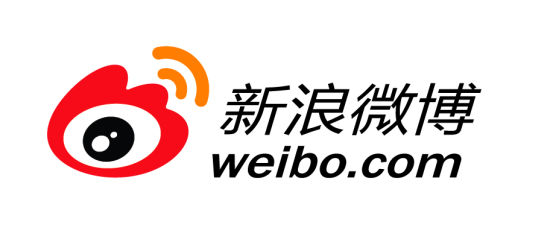It’s the new year, and that means a time of new beginnings for 2 big names, one in the hotel space where China Lodging Group (Nasdaq: HTHT) is starting 2012 with a new CEO, and the other in semiconductors where the long-awaited merger of Hua Hong NEC and Grace Semiconductor may finally happen. Let’s start with the China Lodging, whose CEO will leave after just 2 years on the job and be replaced by executive Chairman Ji Qi. (company announcement) Based on the announcement, Ji will take on the additional CEO role as China Lodging, owner of the Huating brand, embarks on an interesting multi-brand strategy targeting travelers with different quality levels of hotel, similar to what most of the major western brands already do. This strategy may work well for the western brands, but I’m a doubtful that young Chinese operators like China Lodging, 7 Days (NYSE: SVN) and Home Inns (Nasdaq: HMIN), which have all been quite successful with budget hotels, have the necessary expertise to operate at the higher-end of the market, where they will have to compete with the big international chains like Marriott (NYSE: MAR). In the chip space, Hua Hong NEC and Grace Semiconductor, which have talked about a merger for years, have announced that they have finally reached such a merger agreement. (English article) Reports say the new company will have about $600 million in annual revenue, not small but still a fraction of leading Chinese chipmaker SMIC (HKEx: 981; NYSE: SMI), whose annual figure stands at about $1.6 billion. The report says the merged company is quite profitable, with $100 million in annual profit, which I find difficult to believe considering the industry’s current downcycle. I suspect that if the figure is really true, the 2 companies are using accounting tricks to hide their real situation. I see problems ahead for the company as it struggles to integrate after the merger, and if and when it ever goes public, which is probably the ultimate goal, I wouldn’t be surprised to learn that Hua Hong NEC-Grace isn’t quite as profitable as it wants people to believe.
Bottom line: China Lodging Group will have trouble executing its new multi-brand strategy, while Hua Hong NEC and Grace Semi will also face a rough time in their new merger.
Related postings 相关文章:
◙ China Lodging: Rebound Ahead 中国经济型酒店业绩回升在望
◙ Hotels: Expo Hangover Set to Linger into 2012
◙ Chip Merger Near, More Consolidation Ahead? 华虹NEC和宏力半导体合并预示未来或有更多整合

 New comments from China’s anti-monopoly regulator show it is preparing to play an increasingly active role on the global M&A stage, reflecting the nation’s growing importance as not only a major global manufacturer but increasingly also a consumer of many products. The comments from a top Commerce Ministry official, in this case regarding the pending acquisition of Hitachi’s (Tokyo: 6501) memory storage business by Western Digital (NYSE: WDC), look quite intelligent to me, showing that China is taking its new role quite seriously and that it could soon become a major gatekeeper for big global M&A deals, a job now mostly performed by the US and European Union. (
New comments from China’s anti-monopoly regulator show it is preparing to play an increasingly active role on the global M&A stage, reflecting the nation’s growing importance as not only a major global manufacturer but increasingly also a consumer of many products. The comments from a top Commerce Ministry official, in this case regarding the pending acquisition of Hitachi’s (Tokyo: 6501) memory storage business by Western Digital (NYSE: WDC), look quite intelligent to me, showing that China is taking its new role quite seriously and that it could soon become a major gatekeeper for big global M&A deals, a job now mostly performed by the US and European Union. ( I don’t usually like to congratulate myself for making correct predictions, but in this case it does seem my mid-year forecast of a major new round of fund-raising by Chinese banks may soon occur in the new year as many look to repair their stressed-out balance sheets. I made my prediction back in July when China Merchants Bank (HKEx: 3968; Shanghai: 600036), one of the nation’s top regional players, announced plans to raise up to $5.4 billion — its second major capital raising after it and most of the country’s top banks raised hundreds of billions of dollars in 2009. (
I don’t usually like to congratulate myself for making correct predictions, but in this case it does seem my mid-year forecast of a major new round of fund-raising by Chinese banks may soon occur in the new year as many look to repair their stressed-out balance sheets. I made my prediction back in July when China Merchants Bank (HKEx: 3968; Shanghai: 600036), one of the nation’s top regional players, announced plans to raise up to $5.4 billion — its second major capital raising after it and most of the country’s top banks raised hundreds of billions of dollars in 2009. ( Two separate news bits out today show that Asian firms, in this case leading brokerage CITIC Securities (HKEx: 6030; Shanghai: 600030) and 3 Korean TV program makers, may pose an interesting challenge to Western names in lucrative developing new business areas in now taking shape in China. In the first of those bits, CITIC Securities announced it has just received regulatory approval to become a renminbi qualified foreign institutional investor (RQFII), a new program that allows financial services firms to raise Chinese yuan outside the country for re-investment in China stocks and other financial products. (
Two separate news bits out today show that Asian firms, in this case leading brokerage CITIC Securities (HKEx: 6030; Shanghai: 600030) and 3 Korean TV program makers, may pose an interesting challenge to Western names in lucrative developing new business areas in now taking shape in China. In the first of those bits, CITIC Securities announced it has just received regulatory approval to become a renminbi qualified foreign institutional investor (RQFII), a new program that allows financial services firms to raise Chinese yuan outside the country for re-investment in China stocks and other financial products. ( There’s an interesting report in the media space that the Xinhua News Agency plans to publicly list its news web site — a development with hugely symbolic overtones that could foreshadow a long-awaited liberalization in this highly sensitive sector and portend a major new round of IPOs for big media firms. Foreign media are citing unnamed sources saying that Xinhua is planning a domestic listing for its news portal, Xinhuanet, in a deal that would see it raise around 1 billion yuan, or more than $150 million. (
There’s an interesting report in the media space that the Xinhua News Agency plans to publicly list its news web site — a development with hugely symbolic overtones that could foreshadow a long-awaited liberalization in this highly sensitive sector and portend a major new round of IPOs for big media firms. Foreign media are citing unnamed sources saying that Xinhua is planning a domestic listing for its news portal, Xinhuanet, in a deal that would see it raise around 1 billion yuan, or more than $150 million. ( Sina (Nasdaq: SINA), China’s leading web portal whose shares have been battered lately, has received a rare piece of good news in the form of a potential major new investment for its controversial Twitter-like Weibo service from heavy-hitter Digital Sky Technologies (DST). (
Sina (Nasdaq: SINA), China’s leading web portal whose shares have been battered lately, has received a rare piece of good news in the form of a potential major new investment for its controversial Twitter-like Weibo service from heavy-hitter Digital Sky Technologies (DST). ( You know your industry is starting to mature when a big player like Hon Hai (Taipei: 2317), the massive Taiwanese electronics maker of everything from PCs to iPhones, steps in to the picture, a move that should come as both a relief but also a worrisome development for the troubled solar cell sector. Foreign media are reporting that Hon Hai unit Foxconn Technology (Taipei: 2354) is building a massive new solar cell plant in China’s Jiangsu province, adding a major player to a sector already struggling with large overcapacity that has caused prices to tumble by more than 60 percent this year alone and driven nearly every company into the red as their stocks hover near all-time lows. (
You know your industry is starting to mature when a big player like Hon Hai (Taipei: 2317), the massive Taiwanese electronics maker of everything from PCs to iPhones, steps in to the picture, a move that should come as both a relief but also a worrisome development for the troubled solar cell sector. Foreign media are reporting that Hon Hai unit Foxconn Technology (Taipei: 2354) is building a massive new solar cell plant in China’s Jiangsu province, adding a major player to a sector already struggling with large overcapacity that has caused prices to tumble by more than 60 percent this year alone and driven nearly every company into the red as their stocks hover near all-time lows. (